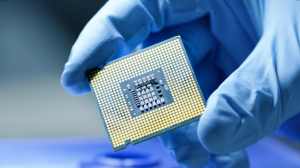Biochips: Addressing the Challenges of Climate Change

Introduction Biological chips (from now on, BCs) are among the most prominent manifestations of the intersection between biology and technology. These advanced devices integrate biological components, such as DNA or protein probes, with microelectronic systems to create miniaturized lab-on-chip platforms. This integration enables precise analysis of biological molecules, thereby transforming the fields of biotechnology and […]
Biological Construction: A Possible Response to Climate Change

Introduction The construction sector is one of the sectors with the highest energy consumption and is responsible for approximately 30% of the global demand for primary energy, nearly 40% of final energy consumption, around 55% of global electricity usage, and approximately 40% of energy-related carbon dioxide (CO2) emissions. The sector places significant pressure on natural […]
Hydrogen as a Climate Disruptor

Hydrogen is a gas used in various industries, mainly as a raw material for producing fertilizers and chemicals (55% of hydrogen use is in ammonia production, 25% in oil refining, and 10% in methanol production). According to the International Energy Agency (IEA), hydrogen usage in other sectors currently includes transportation, aviation (rocket fuel), industrial heating, […]
